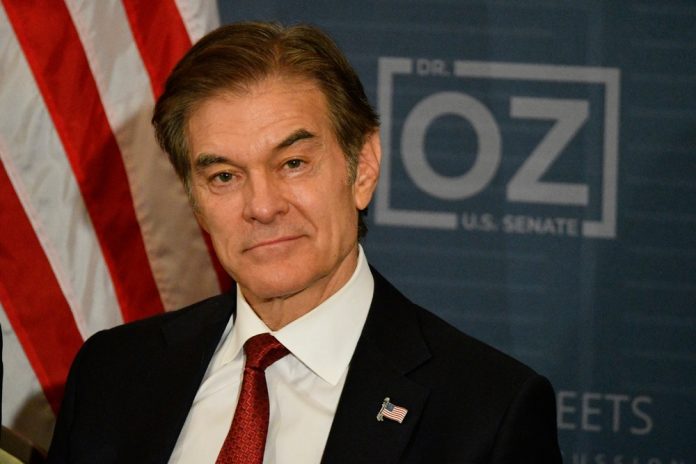
Americans are bankrolling Europe’s discounted medications while pharmaceutical giants reap 70% of their profits from U.S. citizens, prompting Dr. Mehmet Oz to champion President Trump’s ambitious plan to slash drug prices by up to 90% without hindering innovation.
Key Takeaways
- Dr. Oz supports President Trump’s “Most Favored Nation” executive order that aims to reduce U.S. drug prices by 60-90% by matching the lowest prices paid internationally
- Americans currently pay 2-4 times more for medications than Europeans, effectively subsidizing other countries’ healthcare systems
- The plan would require other nations to pay higher prices for medications while reducing costs for Americans, maintaining pharmaceutical industry profitability
- High medication expenses contribute to two-thirds of American bankruptcies related to healthcare issues
- The initiative includes streamlining drug approval processes to improve efficiency and reduce development costs
America’s Unfair Pharmaceutical Burden
Dr. Mehmet Oz, Centers for Medicare and Medicaid Services (CMS) administrator, has become a vocal advocate for President Trump’s groundbreaking initiative to lower prescription drug prices while maintaining pharmaceutical innovation. As American families struggle with medication costs significantly higher than those in other developed nations, Oz points to a fundamental inequity in global pharmaceutical pricing that unfairly burdens U.S. citizens. The pharmaceutical pricing disparity has reached a critical point where American patients pay two to four times more than their European counterparts for identical medications, creating a system where domestic patients effectively subsidize global healthcare.
“There are a lot of good reasons to have an executive order to address the inherent unfairness of American spending so much more than Europeans. We pointed out that there’s about a two to four times increase cost of medications in the United States compared to other competing companies that are similarly wealthy as we are. Does it make sense?” Said Dr. Mehmet Oz.
The Most Favored Nation Solution
President Trump’s “Most Favored Nation” executive order represents a bold approach to rebalancing global pharmaceutical pricing. The policy ties U.S. drug prices to the lowest prices paid internationally, potentially reducing costs by 60% to 90%. Rather than employing price controls that might stifle research and development, Trump’s strategy addresses the root cause of pricing disparities by requiring other wealthy nations to assume their fair share of pharmaceutical research costs. The order directs the U.S. Trade Representative and Department of Commerce to confront foreign policies that have forced Americans to shoulder a disproportionate burden of drug development expenses.
“For years, pharmaceutical and drug companies have said that R&D costs are what they are… and they had to be borne by America alone. This means American patients were subsidizing socialist healthcare systems in Germany, in all parts of the EU… [Those countries are] going to have to pay more for healthcare, and we’re going to have to pay less. That’s all it is,” Said Donald Trump, President of the United States.
Balancing Affordability and Innovation
Dr. Oz emphasizes that the administration’s approach carefully balances the need for affordable medications with maintaining a robust pharmaceutical research sector. Currently, only one in twenty pharmaceutical products successfully reaches the market, often after years of costly development. By streamlining the approval process and distributing research costs more equitably across developed nations, the Trump administration aims to preserve innovation while reducing the financial strain on American families. This approach recognizes the critical importance of pharmaceutical profits for continued medical advancements while addressing the reality that excessive pricing has contributed to healthcare-related bankruptcies.
“Get other countries to pay more so we don’t have to pay as much in America. If we do this the right way, pharmaceutical companies will continue to remain profitable. We want those workers and those researchers thriving, but we want to make sure the American people don’t overpay for their medications.”
Implementation and Industry Response
The implementation of this transformative policy falls to Health and Human Services Secretary Robert F. Kennedy, Jr. and Dr. Oz, who are tasked with communicating new pricing expectations to pharmaceutical companies. While industry leaders have expressed initial skepticism, Dr. Oz reports that pharmaceutical executives are increasingly willing to negotiate with the administration to find workable solutions. The Pharmaceutical Research and Manufacturers of America (PhRMA) has acknowledged the legitimacy of using trade negotiations to ensure other countries pay fair prices for medications, suggesting potential common ground for productive discussions.
“The Administration is right to use trade negotiations to force foreign governments to pay their fair share for medicines,” Said Stephen Ubl.
As the administration moves forward with implementing this policy, Dr. Oz continues to highlight the potential benefits for American families currently struggling with medication costs. By addressing pricing inequities that have forced U.S. citizens to subsidize global healthcare while bearing the brunt of financial stress, the Trump administration aims to deliver meaningful relief to patients while preserving the innovation that drives medical advancement. The policy represents a significant shift in approach to pharmaceutical pricing, prioritizing American patients while maintaining the research infrastructure necessary for future breakthroughs.




